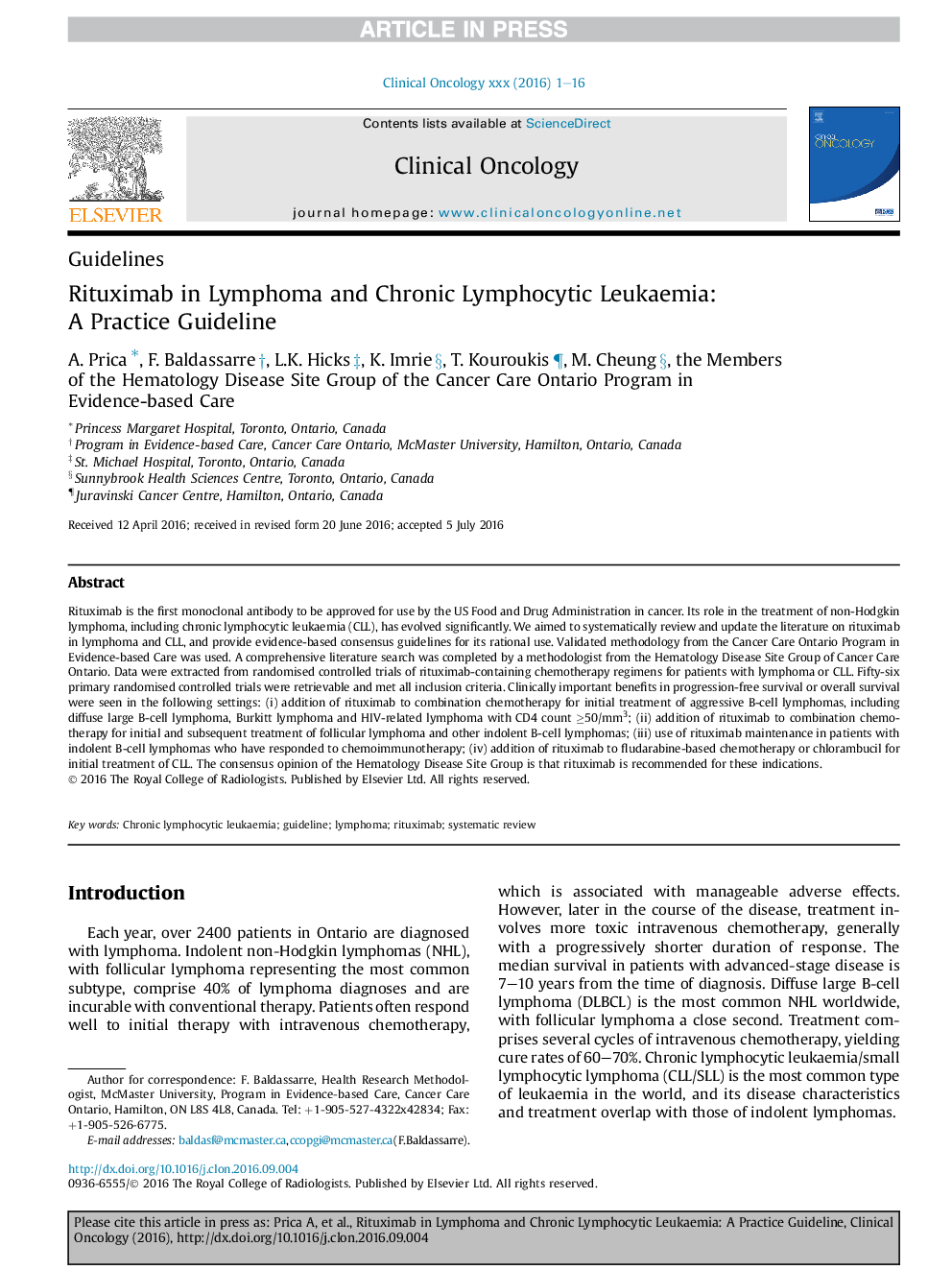| Article ID | Journal | Published Year | Pages | File Type |
|---|---|---|---|---|
| 5698340 | Clinical Oncology | 2017 | 16 Pages |
Abstract
Rituximab is the first monoclonal antibody to be approved for use by the US Food and Drug Administration in cancer. Its role in the treatment of non-Hodgkin lymphoma, including chronic lymphocytic leukaemia (CLL), has evolved significantly. We aimed to systematically review and update the literature on rituximab in lymphoma and CLL, and provide evidence-based consensus guidelines for its rational use. Validated methodology from the Cancer Care Ontario Program in Evidence-based Care was used. A comprehensive literature search was completed by a methodologist from the Hematology Disease Site Group of Cancer Care Ontario. Data were extracted from randomised controlled trials of rituximab-containing chemotherapy regimens for patients with lymphoma or CLL. Fifty-six primary randomised controlled trials were retrievable and met all inclusion criteria. Clinically important benefits in progression-free survival or overall survival were seen in the following settings: (i) addition of rituximab to combination chemotherapy for initial treatment of aggressive B-cell lymphomas, including diffuse large B-cell lymphoma, Burkitt lymphoma and HIV-related lymphoma with CD4 count â¥50/mm3; (ii) addition of rituximab to combination chemotherapy for initial and subsequent treatment of follicular lymphoma and other indolent B-cell lymphomas; (iii) use of rituximab maintenance in patients with indolent B-cell lymphomas who have responded to chemoimmunotherapy; (iv) addition of rituximab to fludarabine-based chemotherapy or chlorambucil for initial treatment of CLL. The consensus opinion of the Hematology Disease Site Group is that rituximab is recommended for these indications.
Related Topics
Health Sciences
Medicine and Dentistry
Oncology
Authors
A. Prica, F. Baldassarre, L.K. Hicks, K. Imrie, T. Kouroukis, M. Cheung,
